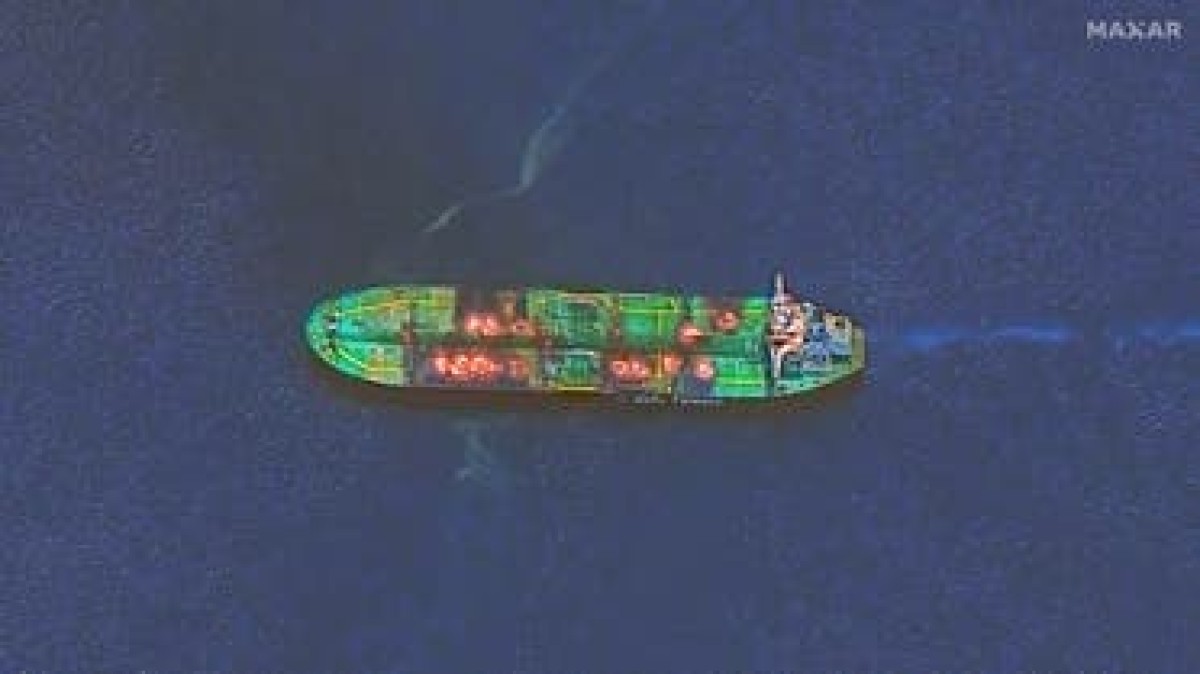Aspids: Conditions are unfavorable for towing the Sounion ship


The European naval mission "ASPEDS" announced on Tuesday that "conditions are unfavorable" for towing the burning Greek oil tanker "Sounion" after it was attacked by the Houthis off Yemen, warning of an "unprecedented" environmental disaster in the region.
The Aspidas mission concerned with security in the Red Sea reported on its account on the “X” platform that “the private companies responsible for the rescue operation concluded that the conditions were not suitable for carrying out the towing operation, and that it was not safe to proceed,” according to France. Press.
"An unprecedented environmental disaster"
She also added that “private companies are now studying alternative solutions,” without providing further details about the issue of safety in a region that witnesses constant targeting of commercial ships.
It also added that its mission aims to “facilitate the prevention of an unprecedented environmental disaster in the region,” stressing that it “continues to focus on its original mission, which is to act as a reliable maritime security provider from the European Union, with the aim of contributing to the freedom of navigation for commercial ships in its area of operations.” ".
This came the day after the mission announced, on Monday, that the towing operation was “about to begin.”
Houthi attack
It is noteworthy that on August 21, the ship “Sounion”, flying the Greek flag, was attacked by the Houthis, which, according to the British Maritime Trade Operations Authority (UKMTO), led to a fire breaking out on board and its engine failing.
While the Houthis announced that they had booby-trapped and then exploded the “Sunion” oil tanker, which they had previously attacked in the Red Sea, causing several fires to break out on board before it was “allowed” to be rescued.
The crew of the ship "Sounion", consisting of 23 Filipinos and two Russians, was evacuated the day after the attack by a French frigate participating in the European mission.
It is noteworthy that the "ASPEDS" mission was launched in February to protect commercial ships from Houthi attacks. It is also purely defensive and is allowed to fire to defend ships or defend itself.